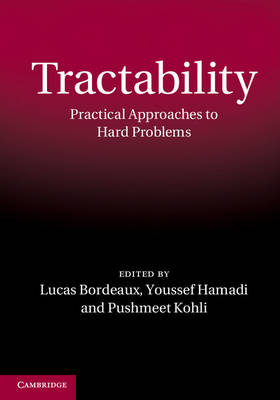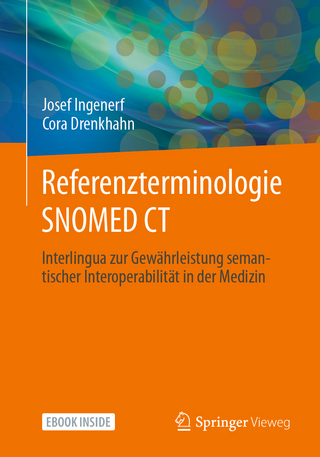
Tractability
Cambridge University Press (Verlag)
978-1-107-02519-6 (ISBN)
Classical computer science textbooks tell us that some problems are 'hard'. Yet many areas, from machine learning and computer vision to theorem proving and software verification, have defined their own set of tools for effectively solving complex problems. Tractability provides an overview of these different techniques, and of the fundamental concepts and properties used to tame intractability. This book will help you understand what to do when facing a hard computational problem. Can the problem be modelled by convex, or submodular functions? Will the instances arising in practice be of low treewidth, or exhibit another specific graph structure that makes them easy? Is it acceptable to use scalable, but approximate algorithms? A wide range of approaches is presented through self-contained chapters written by authoritative researchers on each topic. As a reference on a core problem in computer science, this book will appeal to theoreticians and practitioners alike.
Lucas Bordeaux is a Senior Research Software Development Engineer at Microsoft Research, Cambridge, where he works on the design and applications of algorithms to solve hard inference problems. Youssef Hamadi is a Senior Researcher at Microsoft Research, Cambridge. His work involves the practical resolution of large-scale real life problems set at the intersection of Optimization and Artificial Intelligence. His current research considers the design of complex systems based on multiple formalisms fed by different information channels which plan ahead and perform smart decisions. His current focus is on Autonomous Search, Parallel Search, and Propositional Satisfiability, with applications to Environmental Intelligence, Business Intelligence, and Software Verification. Pushmeet Kohli is a Research Scientist in the Machine Learning and Perception group at Microsoft Research, Cambridge. His research interests span the fields of Computer Vision, Machine Learning, Discrete Optimization, Game Theory, and Human-Computer Interaction with the overall aim of 'teaching' computers to understand the behaviour and intent of human users, and to correctly interpret (or 'See') objects and scenes depicted in colour/depth images or videos. In the context of tractability and optimization, Pushmeet has worked on developing adaptive combinatorial and message passing-based optimization algorithms that exploit the structure of problems to achieve improved performance.
Contributors; Introduction Lucas Bordeaux, Youssef Hamadi and Pushmeet Kohli; Part I. Graphical Structure: 1. Treewidth and hypertree width Georg Gottlob, Gianluigi Greco and Francesco Scarcello; 2. Perfect graphs and graphical modeling Tony Jebara; Part II. Language Restrictions: 3. Submodular function maximization Andreas Krause and Daniel Golovin; 4. Tractable valued constraints Peter G. Jeavons and Stanislav Živný; 5. Tractable knowledge representation formalisms Adnan Darwiche; Part III. Algorithms and their Analysis: 6. Tree-reweighted message passing Vladimir Kolmogorov; 7. Tractable optimization in machine learning Suvrit Sra; 8. Approximation algorithms Mohit Singh and Kunal Talwar; 9. Kernelization methods for fixed-parameter tractability Fedor V. Fomin and Saket Saurabh; Part IV. Tractability in Some Specific Areas: 10. Efficient submodular function minimization for computer vision Pushmeet Kohli; 11. Towards practical graph-based, iteratively decoded channel codes: insights through absorbing sets Lara Dolecek; Part V. Heuristics: 12. SAT solvers Joao Marques-Silva and Ines Lynce; 13. Tractability and modern satisfiability modulo theories solvers Nikolaj Bjørner and Leonardo de Moura.
| Zusatzinfo | Worked examples or Exercises; 30 Halftones, unspecified; 45 Line drawings, unspecified |
|---|---|
| Verlagsort | Cambridge |
| Sprache | englisch |
| Maße | 178 x 253 mm |
| Gewicht | 930 g |
| Themenwelt | Informatik ► Theorie / Studium ► Algorithmen |
| ISBN-10 | 1-107-02519-2 / 1107025192 |
| ISBN-13 | 978-1-107-02519-6 / 9781107025196 |
| Zustand | Neuware |
| Haben Sie eine Frage zum Produkt? |
aus dem Bereich


